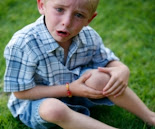Parents' Problem-Solving Skills for Hostile Teens with Autism Spectrum Disorder

“My wife and I are struggling dealing with our angry, increasingly aggressive 14 yr old son with high functioning autism. He's now refusing to hand over his electronics at night and shouting occurs. He is testing the boundaries, of course, but physical confrontation is something we don't know how to cope with.” Addressing hostility and aggressiveness in teens with Asperger’s (AS) and High-Functioning Autism (HFA) can be a frustrating and demanding process. The challenge for parents and teachers is to address the behavior in a constructive manner, rather than simply reacting to it. When AS and HFA teens are exhibiting hostile behaviors, it is often a sign that they are not receiving adequate support in mastering their environments, both at home and school. In addition, their aggressiveness does not necessarily reflect willfulness, rather they lack the social skills needed to “fit-in” and to be accepted by others – especially their peers. What makes AS and HFA teens a

